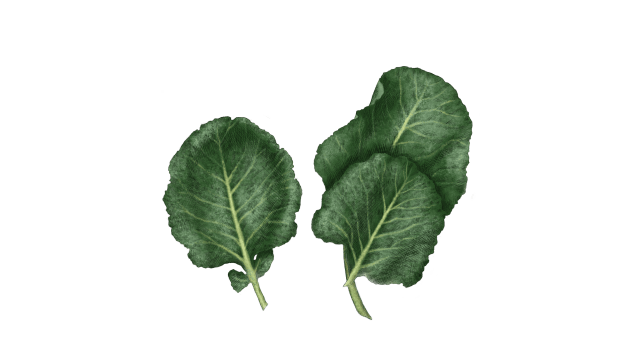How to HALT Crappy Feelings

Have you ever had a day when the world seemed perfectly positioned to get under your skin? You spilled your coffee. You can’t find your favorite shirt. And you’re sure you’ll scream if you hit one more red light. In moments like these, it’s easy to lose control of your emotions — and you’re in danger of dumping your frustrations on whoever crosses your path.
Before you say or do something you’ll regret, tell yourself to “HALT.” Hidden within these letters might be the key to freeing your frustrated mind.
Using the HALT Method for Negative Emotions
HALT is an acronym that stands for:
- Hungry
- Angry
- Lonely
- Tired
It’s a technique with roots in the recovery community that’s based on a simple idea: we’re more likely to make impulsive, emotionally charged decisions when we’re hungry, angry, lonely, or tired. When we tell ourselves to HALT, it’s a reminder to stop and figure out what's really bothering us.
If the idea of pausing to check in with yourself sounds familiar, that’s because, at its core, the HALT method is a mindfulness practice. It asks us to become aware of how we’re feeling so we can choose our next action with intention. The HALT technique goes one step further, however. It shows you how to deal with negative emotions by identifying the core need that’s triggering them. That way, you can find a way back to balance and feel like yourself again.
Check In: Are You Hungry?
Hunger has such a powerful effect on our emotions that we invented the term “hangry.” A 2022 study confirmed this unpleasant phenomenon: hunger is associated with increased anger and irritability, and lower levels of pleasure. As if that’s not challenging enough, another study found that skipping a meal made people more impatient. They were more likely to make decisions that favored short-term gratification over long-term gains, whether or not the choice had anything to do with food.
If you notice signs of hunger — like stomach rumbling, light-headedness, irritability, or shakiness — ask yourself when you last ate. It may be time to refuel if it’s been a few hours or you haven’t eaten properly. Consider what foods will help you feel physically and emotionally satisfied to land on something truly nourishing. Then avoid making big decisions or having tough conversations until after you’ve had your snack.
Try This: To ease stress and boost your mood while you eat, try this 3-Minute Mindful Snack Break with Jay Vidyarthi.
Is It Unresolved Anger?
If you’re avoiding something that made you angry, the underlying irritation can bleed into other areas of your life. Anger floods our brains with chemicals like adrenaline that stimulate the “fight or flight” response. Suddenly, we’re thrust into defensive mode, leaving us more reactive and less able to make good decisions.
Anger can be such a powerful emotion that it’s a good idea to have a plan in place. Roundglass meditation teacher Lama Yeshe recommends identifying your personal anger antidotes. “Think, ‘what can I do to stop that anger?’" he says. It could be taking a few deep breaths, trying a guided meditation for stress, or even vigorously cleaning your home to release excess energy. Do what works best for you.
Anger can feel like a personal shortcoming, but it’s a natural part of the human experience. “Let me let you in on a little secret, says Roundglass mindfulness teacher Vishvapani Blomfield. “Even the most practiced meditators get stressed and irritable sometimes.” The important thing is to HALT and get curious about your feelings.
Try This: Find your anger antidotes and explore mindfulness practices for stress with Lama Yeshe in his course, 4 Steps to Tame Anger.
Could You Be Lonely?
When our stomachs rumble, we know we’re hungry. But loneliness can be a bit trickier to identify. “Sometimes, I’ll eat the entire contents of my kitchen cabinet before realizing I’m not hungry; I’m lonely. Or I’ll binge-watch three hours of a TV show when it hits me that I’m not bored; I’m actually lonely,” says Roundglass meditation teacher Yael Shy. If you catch yourself mid-coping mechanism, or simply feeling restless and dissatisfied, HALT and ask yourself if you’ve reached out to anyone lately.
Another tricky thing about loneliness is that you don’t have to be socially isolated to experience it. When Lianne Kurina, Ph.D., an assistant professor of epidemiology at the University of Chicago, led a study linking loneliness to sleep disruption, she found that though the community she studied was tight-knit, loneliness levels varied widely. “It’s the space between what you want and what you have that can turn into loneliness,” she says.
Even if you don’t feel lonely, making time for meaningful interactions is essential. In their book, The Good Life, authors Robert Waldinger M.D. and Marc Schulz Ph.D. reveal insights from the Harvard Study of Adult Development, the world’s longest scientific study of happiness. After following hundreds of participants for their entire adult lives, the researchers identified relationships as the most important factor for long-term happiness, satisfaction, and overall health. These life-enhancing connections can take many forms, from friendships to coworkers to family. So if your life is feeling light in this area, join a club, call a loved one, or sign up for that class you’ve been wanting to take.
Try This: If you’re looking for the wisdom in solitude or simply want to feel less alone, join Yael Shy in her course, Discover the Gifts in Loneliness.
Are You Just Plain Tired?
It is easy to ignore how tired we are when our days are filled with back-to-back errands, meetings, and deadlines. But constantly running on empty compromises our ability to think clearly and cope with challenges.
Shy recommends asking your body what it needs in moments of fatigue. “Just put a hand on your chest or on your belly and ask yourself, ‘How do I feel right now? What can I do for myself right now?’” Once you have your answer, whether it’s going to bed earlier, clearing some time in your schedule, or practicing yoga nidra (yoga’s version of a nap), do everything in your power to make it happen. Even if you can only make space for a few minutes of meditation, you’ll reap some fatigue-fighting benefits.
Try This: Get support to Cope with Burnout in this replenishing meditation for stress and fatigue with Yael Shy.
Handling Negative Emotions with Self-Awareness
You don’t have to go through life feeling like a ticking time bomb. The next time you feel an irrational, negative impulse, try turning to mindfulness using the HALT technique to discover where it’s coming from. Pause for a moment to do an internal assessment, then take the necessary steps to address your needs. And if you slip up and have a bad day, go easy on yourself. This practice is cultivated over a lifetime. As mindfulness and emotional intelligence teacher Michelle Maldonado points out, "There is no arrival point with self-awareness; it is ever-evolving."
Still can’t shake your bad mood? Try this course, Yoga for Balancing Emotions, by Roundglass teacher Shani Dayal, to help move negative emotions out of your body and restore the flow of positive energy.
We have a library of meditation and mindfulness practices to help you deal with stress and challenging emotions. Download the Roundglass app to find what's right for you.
Key Takeaways:
- HALT is an acronym that helps us check-in and identify the core need that’s triggering a lousy mood.
- Hunger can make us feel irritable and impatient. If you find yourself short-fused, it may be time for a snack.
- Anger sends our brains into “fight or flight’ mode, which puts us on the defensive. It’s important to have a strategy for dealing with anger when it flares up.
- Loneliness can feel like a hunger you can’t satisfy. Check-in to see if you’re really craving connection.
- Tired? The only solution is rest. Give your body what it needs to prevent burnout down the road.










